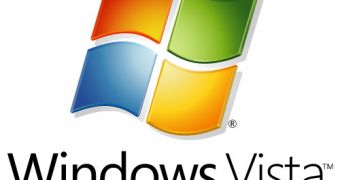Windows users are at a juncture in terms of operating system choices at this point in time, caught between Windows Vista SP1, Windows XP SP3 and Windows 7. Well, choosing Windows 7 is still selecting between Vista or XP, plus opting to wait at least a year and a half until Microsoft offers the next version of the Windows client. So, with the actual options limited to just Vista and XP, Microsoft is advising end users to at least run XP SP3 if they plan to skip Vista SP1.
"Since many of you are using Windows XP, rest assured we will continue to support Windows XP and that you can deploy new PCs with Windows XP if you choose. You should also deploy Windows XP Service Pack 3 and Internet Explorer 7 for an improved, more secure experience," stated Bill Veghte, Senior Vice President, Online Services & Windows Business Group.
Microsoft will continue to offer extended support for Windows XP SP3 until April 2014, although Mainstream support will be retired next year, in April 2009. June 30, 2008 will be the last day Microsoft and its retail and OEM partners will sell boxed copies of Windows XP, or new computers preloaded with the operating system.
The Redmond company is well aware that business customers will continue to stick to Windows XP, due mainly to unsynchronized software and hardware upgrade cycles, the requirements of Vista making migration processes virtually synonymous with hardware upgrades, and fear of lack of application support, driver incompatibility and poor performance. In this context, XP SP3 is a viable alternative to Vista.
"If you have existing PCs running Windows XP, then you can use Windows XP for as long as you need. If you do stay on Windows XP, we recommend you install Service Pack 3 and Internet Explorer 7," Veghte added.
At over a year since Vista hit the shelves, Microsoft is applauding Service Pack 1 as a maturity milestone which has scraped major problems. Traditionally, Windows clients are only taken into consideration for enterprise-level migrations following SP1. And this is precisely the case for Vista. Still, Microsoft knows that in the end, the cost of hardware upgrade is a deal breaker when it comes to moving to Vista, even with SP1.
"We designed our management tools to support a mixed environment of Windows XP and Windows Vista, so a strategy that puts Windows Vista on newer PCs that have the hardware capability for Windows Vista, while leaving Windows XP on older systems may be best," Veghte said.
In the software giant's perspective, Vista is the best Windows operating system available, this even in the context of Windows XP SP3. In the end, when it comes down to buying a new Windows operating system, customers will have little choice because XP will no longer be sold after June 30.
"If you use an application that isn't available for Windows Vista or if you just aren't ready to upgrade, you should get a new PC with Windows Vista Business or Windows Vista Ultimate, and then take advantage of downgrade rights to use Windows XP Professional for as long as is necessary," Veghte informed.

 14 DAY TRIAL //
14 DAY TRIAL //